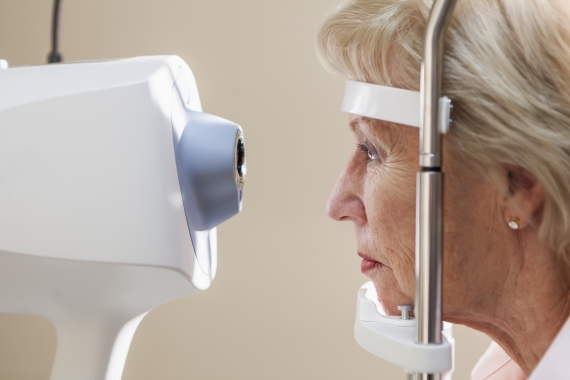10 Facts You Should Know About Glaucoma
Whether you have already been diagnosed and need treatment or want to protect your eyes from the possibility of getting glaucoma, here are 10 facts you should know about the disease.
Glaucoma Facts

- Glaucoma can cause blindness if left untreated. It is not curable, and vision that is lost cannot be restored.
- Glaucoma has many causes and elevated eye pressure is a factor in most. Pressure builds up in the eye due to problems with drainage of aqueous humor, a fluid produced in the eye.
- Over 4 million Americans are estimated to have glaucoma, but nearly half of them are not aware they have the disease.
- About 90% of patients aged 40 and older are affected by open-angle glaucoma, the most common form of the disease.
- It is possible for babies and children to get a rare form of early onset glaucoma.
- Open-angle glaucoma typically has no symptoms, pain or warning signs.
- Closed-angle glaucoma, the rarer form of the disease, is a medical emergency. If not treated immediately, blindness can quickly result.
- Glaucoma is 5 times more likely to cause blindness in African Americans than in Caucasians and four times more likely to cause vision loss.
- The risk of glaucoma rises rapidly in Hispanics over the age of 60.
What Causes Glaucoma?
Glaucoma is a disease that affects the optic nerve located at the back of the eye. The optic nerve is made up of about 1 million nerve fibers, like an electrical cable that contains many wires. It is essential for vision because it carries images of the objects we see to the brain.
There is also a natural fluid in the eye, called aqueous humor, which is produced constantly to nourish the front of the eye between the lens and the cornea. This fluid helps to maintain a healthy level of pressure inside the eye and flows out through a microscopic drainage system.
If the drainage area (called the drainage angle) becomes blocked and is unable to drain properly, pressure within the eye can build up and push against the optic nerve fibers, causing blind spots to develop. Permanent vision loss results when the entire optic nerve is significantly damaged or destroyed.
How Is Glaucoma Detected?
Getting a comprehensive dilated eye exam at Elmquist Eye Group is the most important thing you can do to detect glaucoma before it damages your vision. A glaucoma screening that checks only the pressure of the eye is not sufficient.
We will use drops to dilate the pupil of your eye to examine your optic nerve and other diagnostic tests to visualize and assess any damage to the optic nerve. We may also inspect the drainage structure of your eye, analyze the optic nerve by means of a scanning laser, take optic nerve photos, measure the corneal thickness, and test the visual fields of each eye.
About Elmquist Eye Group
Elmquist Eye Group has served Fort Myers, Cape Coral, and Southwest Florida for more than two decades, providing a complete range of services, including comprehensive eye exams, routine eye exams for glasses, and laser cataract and glaucoma surgery.
If, after reviewing these 10 facts about glaucoma, you are interested in discussing laser surgery and other treatment options, you should consider scheduling an evaluation at Elmquist Eye Group by calling (239) 936-2020.
